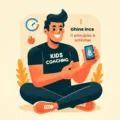Becoming a parent is one of the most profound transformations a person can experience. With the arrival of a child, life takes on new meanings, challenges, and joys. As a seasoned parent, I’ve ridden the rollercoaster of parenthood and emerged with insights that have not only shaped my parenting approach but also my perspective on life. In this article, I’ll share the paradoxes I’ve encountered and the lessons learned from the amazing journey of raising children.
The Joy and Exhaustion of Early Parenthood
The initial stages of parenthood are filled with an indescribable joy that comes from holding your baby for the first time. However, this period is also characterized by a level of exhaustion that most new parents are unprepared for. The sleepless nights and the constant demands of a newborn test your limits, but they also teach you about resilience and the depths of your love.
Independence and Attachment
As children grow, so does their need for independence. It’s a paradoxical time for parents, who must encourage their kids to explore and become their own people, while also feeling the instinctual pull to protect and keep them close. This balancing act has taught me the importance of trust and letting go, even when it’s the last thing I want to do.
Teaching and Learning
Parents are often seen as the primary teachers in their children’s lives, imparting wisdom and guiding them through life’s challenges. However, I’ve learned that this relationship is reciprocal. My children have taught me just as much about life, love, and the world. They offer fresh perspectives and remind me to appreciate the wonder in the everyday.
Discipline and Understanding
Discipline is a critical aspect of parenthood, but it’s often tinged with guilt and doubt. Striking the right balance between setting boundaries and understanding your child’s individual needs and feelings is a tough lesson in empathy and communication. It’s about guiding rather than dictating, listening rather than assuming.
Letting Kids Fail
One of the hardest lessons for any parent is allowing their children to fail. Yet, it’s through these failures that kids learn resilience and problem-solving. It’s a delicate dance between offering support and stepping back, but it’s crucial for their development into capable, confident individuals.
FAQ Section
How do you balance the need for discipline with understanding your child’s perspective?
Balance is achieved by setting clear expectations and being consistent with discipline, while also taking the time to listen and understand your child’s point of view. It’s important to communicate the reasons behind rules and to show empathy, demonstrating that while you hold them accountable, you also care about their feelings and experiences.
What’s the best way to support a child’s independence?
Supporting a child’s independence involves providing them with opportunities to make choices and take on responsibilities appropriate for their age. It’s also crucial to encourage exploration and to be a safety net rather than a leash, allowing them to learn from their own experiences.
How can parents find time for self-care while managing the demands of parenthood?
Self-care for parents can be integrated into daily life by setting aside small moments for personal activities, seeking support from partners or family members, and being willing to accept that it’s okay to take a break and recharge. It’s not selfish; it’s necessary for maintaining the energy and patience needed for parenting.
How do you teach children to be resilient in the face of failure?
Resilience is taught by allowing children to face natural consequences and by resisting the urge to immediately fix their problems. Encourage them to try again, help them strategize solutions, and celebrate the effort rather than just the outcome. This approach helps children develop the grit they need to overcome challenges.
Can parenting really teach you about life?
Absolutely. Parenting is a mirror that reflects our own behaviors and values. It’s a journey that challenges our patience, empathy, and problem-solving skills. By guiding our children, we often find that we refine our own character and learn lessons that apply well beyond the realm of parenting.









